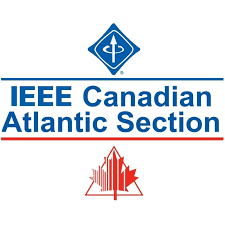Keynote Speakers

Rhonda Green
Title
Revolutionizing Logistics: A Comprehensive Ecosystem Approach for Driving RFID Reader and Tag Innovations
Abstract
In today’s rapidly evolving logistics landscape, the need for efficiency, accuracy, and minimal human interaction has never been more critical. This keynote address will explore the transformative impact of RFID technology on logistics systems, underscoring its significance in the post-COVID era where automation and contactless operations are paramount.
As more companies accelerate the adoption of RFID solutions to meet heightened demands for efficiency and safety; we’ll explore the distinctions between passive and active tags, examining their functionalities, costs, and applications in diverse environments.
A key component of the talk will be logistics optimization from a holistic viewpoint. We’ll address the critical importance of tracking products through the supply chain, emphasizing the role of RFID in mitigating errors and enhancing the speed and reliability of logistics operations.
Furthermore, we’ll provide a technical overview of the components and protocols that make up RFID systems, such as the GS1 Gen2 protocol and its sophisticated random-access procedures. This insight will shed light on the underlying technology that powers the RFID ecosystem, ensuring efficient communication and data processing.
Finally, we’ll delve into the cutting-edge advancements offered by Zebra Technologies, highlighting their comprehensive end-to-end solutions that deliver real-time insights, ensuring products are accurately tracked across complex supply chains. From warehouses to indoor customer-facing environments, RFID readers, printers, and antennas provide unparalleled real-time asset tracking capabilities, ensuring seamless inventory management and operational efficiency.
Attendees will gain strategic insights into how RFID technology is redefining and revolutionizing logistics, enabling industries to navigate challenges with greater agility and precision. This keynote aims to inspire a reimagining of logistics, empowering companies to enhance productivity, resilience, and innovation for a dynamic future.
Biography
Rhonda Green is a highly accomplished leader in technology and innovation, recognized for her leadership in professional organizations and advocacy for diversity in STEM. Her pivotal role at Zebra Technologies, a global leader in enterprise solutions and services has been marked by significant contributions to developing cutting-edge RFID solutions that have profoundly impacted businesses worldwide. Her visionary leadership has solidified her reputation as a trailblazer in the tech sector.
Currently serving as Chair of the IEEE Long Island Section, Rhonda is the first African American to lead this group since its formation in 1952—a milestone celebrated in local media. In her role, she has championed initiatives to enhance technical excellence and professional development. Most recently, she served as Vice Chair of the IEEE Women in Engineering USA East Conference, further demonstrating her commitment to empowering underrepresented groups in engineering.
Rhonda’s influence extends beyond her professional achievements. She has been a prominent speaker at numerous technology and leadership events, including a distinguished presentation at the United Nations ECOSOC Chamber for the Commission on the Status of Women, where she advocated for advancing women’s empowerment.
Among her many accolades, Rhonda was honored with the LISTnet Diamond Award, recognizing her exceptional leadership and impact within the technology ecosystem. Her dynamic career spans academia and industry, exemplifying her dedication to fostering innovation and promoting STEM education.
A Pittsburgh native now shaping the future of engineering on Long Island, Rhonda holds a Bachelor of Science degree from Carnegie Mellon University and a Master of Science degree from the NYU Tandon School of Engineering. Her work continues to inspire the next generation of engineers and technologists.

Scott Burleigh
Title
Delay-Sensitive Applications Over a Delay-Tolerant Network.
Abstract
The original motivation for the research and development behind the Delay-Tolerant Networking (DTN) communications architecture was the realization in 1998 that, while the scope of space flight operations beyond low-Earth orbit was likely to grow over the coming decades, the prevailing models for communication with these distant operational entities would not scale up to support them. An automated, connection-rich fabric like the Internet would be needed, but environmental assumptions underlying the design of the Internet protocols made that architecture unsuitable. Twenty-seven years later, DTN is operational in flight missions. However, deployment of the thousands of applications that make the Internet so powerful remains a challenge, as many Internet applications were designed under those same assumptions of continuous connectivity and minimal transmission delay. This talk will discuss ways in which the application of core delay-tolerant communication principles can enable such applications to be readily integrated into a Solar System Internet.
Biography
Scott Burleigh retired from the Jet Propulsion Laboratory (JPL), California Institute of Technology, where he was a principal engineer, in 2021. His career spanned over 48 years of experience in computer software development including 35 years of software engineering for space flight applications. A founding member of the Delay-Tolerant Networking (DTN) Research Group of the Internet Research Task Force, Mr. Burleigh co-authored the specification for version 6 of the DTN Bundle Protocol (BP), supporting automated data forwarding through a network of intermittently connected nodes, and was the principal author of the specification for BP version 7 (Internet RFC 9171). He led development of the Interplanetary Overlay Network (ION) implementations of BP and related protocols, which are currently in operation on the International Space Station and in NASA’s Plankton, Aerosol, Cloud, ocean Ecosystem (PACE) mission. He was Principal Investigator and software lead for the Deep Impact Network experiment, which operated an ION-based interplanetary networking router on the EPOXI spacecraft in solar orbit more than 60 light seconds from Earth for four weeks in 2008. ION was JPL’s nominee for NASA’s Software of the Year award in 2010. Mr. Burleigh has been awarded the NASA Exceptional Engineering Achievement Medal, the NASA Exceptional Public Service Medal, and four NASA Space Act Awards for his work on these communication protocols. He currently assists in software systems engineering for the Space Exploration Sector of the Johns Hopkins University’s Applied Physics Laboratory.

Brian Gallant
Title
Space’s Role in a Shifting Geopolitical Landscape: Building Strength in the Global Space Economy
Abstract
In an era marked by geopolitical uncertainty and rapid technological change, the global space economy is emerging as a defining arena of strategic competition and collaboration. Space is not only an economic frontier but also a critical domain for national security, resilience, and innovation.
This presentation will analyze the economic opportunities space affords, the contributions it can make to addressing urgent policy challenges such as climate change and digital inclusion, and the approaches being pursued by Canada and other spacefaring nations. It will also review actions and programs that should be advanced by countries to strengthen their respective space sectors.
The hope is that attendees will gain a clearer understanding of why space matters for our collective future and what public policy approaches are needed to strengthen the global space ecosystem.
Biography
Brian Gallant, K.C., is the CEO of Space Canada, and he was the 33rd Premier of New Brunswick.
Brian is a Special Advisor to the President of Ontario Tech University. He also frequently provides business and political analysis as a media commentator for CTV and Radio Canada.
Brian is supportive of many causes and initiatives as a member of several boards of directors including the Asia Pacific Foundation of Canada, the Canada’s Sports Hall of Fame, and the Canadian Olympic Foundation.
IMPORTANT DATES
Paper Submission Deadline: July 13, 2025
Paper Submission: July 31, 2025
Camera Ready Final Paper Submission: September 13, 2025
Acceptance Notification: August 13, 2025
Acceptance Notification: August 20, 2025
Early Bird Registration: September 15, 2025
Conference Date: October 13 – 15, 2025
Conference Location: Halifax, Nova Scotia, Canada
SPONSORS





Patrons
